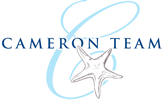In today’s gig economy, the number of freelancers, independent contractors, and self-employed individuals is at an all-time high. The freedom of freelancing is immensely appealing, offering flexible hours, the choice of projects, and often the ability to work from anywhere. However, when it comes to major financial milestones like buying a home, freelancers may find themselves navigating a more complex path than their traditionally employed counterparts. The question of “How can I get a mortgage if I’m a freelancer?” is a common concern, but fear not. With the right preparation and knowledge, securing a mortgage is entirely within reach.
Understanding the Challenge
The primary challenge for freelancers in the mortgage process lies in proving a stable income. Traditional employees can easily show proof of income through W-2 forms and pay stubs, but freelancers’ income can fluctuate, making lenders more cautious. However, this doesn’t mean that getting a mortgage is off the table. It simply means you’ll need to be more prepared.
Step 1: Get Your Finances in Order
A. Keep Detailed Financial Records
As a freelancer, your best ally is detailed, organized financial records. Lenders will want to see a full picture of your income, which means you’ll need to provide tax returns, 1099 forms, profit and loss statements, and bank statements. Generally, lenders will look at the last two years of your financial history, so it’s crucial to keep these documents well-organized and readily available.
B. Maintain a Healthy Credit Score
Your credit score plays a significant role in your mortgage application. Aim for a score of at least 670, though scores above 700 are even more favorable. Pay down debts, make all payments on time, and avoid opening new credit lines before applying for a mortgage to help boost your score.
C. Save for a Larger Down Payment
Freelancers might find it beneficial to offer a larger down payment. This reduces the lender’s risk and can help secure a more favorable mortgage rate. While 20% is traditionally advised, even a slightly higher down payment can make a significant difference.
Step 2: Demonstrate Income Stability
A. Show Consistent Work
Lenders want to see that you have a steady stream of projects and that your income, while variable, is reliable. A history of contracts, ongoing gigs, or repeat clients can serve as proof of a sustainable freelancing career.
B. Calculate Your Average Income
Lenders will often calculate your average monthly income based on the past two years. If your income has been increasing, this can work in your favor. Be prepared to explain any significant fluctuations in your income, and consider waiting to apply until you have a solid track record of consistent or growing earnings.
C. Consider a Co-Signer
If your income is too unpredictable or your financial history doesn’t meet the lender’s requirements, a co-signer with a stable income and good credit can bolster your application. This person will be legally responsible for the mortgage if you cannot make payments, so ensure it’s someone who trusts you and understands the implications.
Step 3: Choose the Right Lender
Not all lenders are created equal, especially when it comes to freelancers. Some are more experienced and willing to work with self-employed individuals.
A. Research Freelancer-Friendly Lenders
Look for lenders with a track record of working with freelancers. These institutions are more likely to understand your unique situation and offer more flexible requirements.
B. Consider Alternative Lending Options
Beyond traditional banks, there are credit unions, online mortgage lenders, and other financial institutions that may offer more flexibility for freelancers. These lenders often have different evaluation criteria that could work in your favor.
C. Get Pre-Approved
Pre-approval is a significant step in the home-buying process, giving you a better idea of what you can afford and showing sellers that you’re a serious buyer. As a freelancer, getting pre-approved also ensures that you meet a lender’s criteria before you’re too far down the path.
Final Thoughts
The path to homeownership as a freelancer may have a few more twists and turns than the traditional route, but it’s far from impossible. With thorough preparation, detailed financial records, and a strong understanding of what lenders are looking for, you can position yourself as a viable candidate for a mortgage. Remember, every freelancer’s situation is unique, so what worked for one person may not work for another. Stay flexible, do your research, and don’t hesitate to seek advice from financial advisors or mortgage brokers who understand the freelancer landscape.
Homeownership is a significant milestone, and while the journey there can seem daunting for freelancers, it’s also incredibly rewarding. By taking the time to get your finances in order, researching the best lending options, and demonstrating your reliability as a borrower, you’re taking important steps toward securing your dream home. So, whether you’re a seasoned freelancer or just starting out, remember that with the right approach, getting a mortgage is within your reach.






